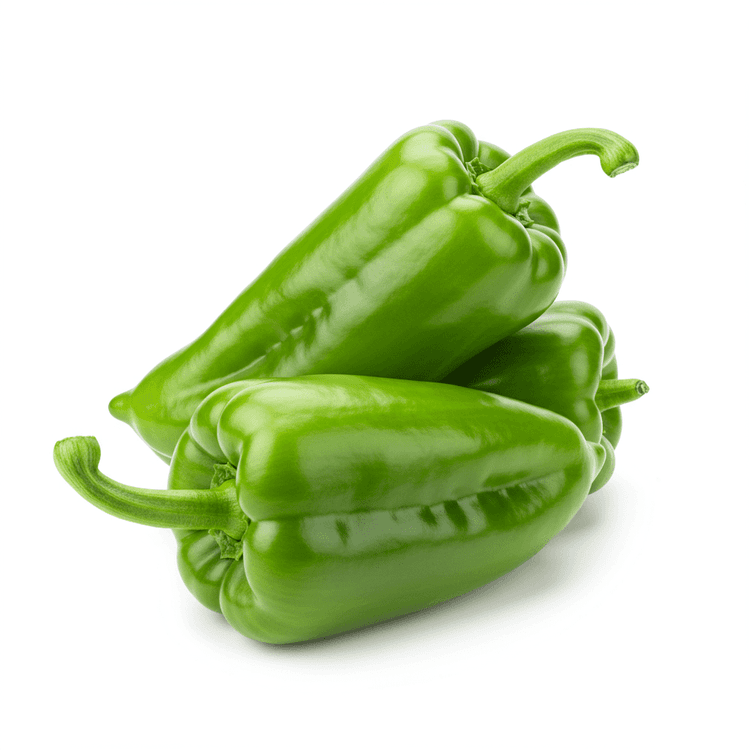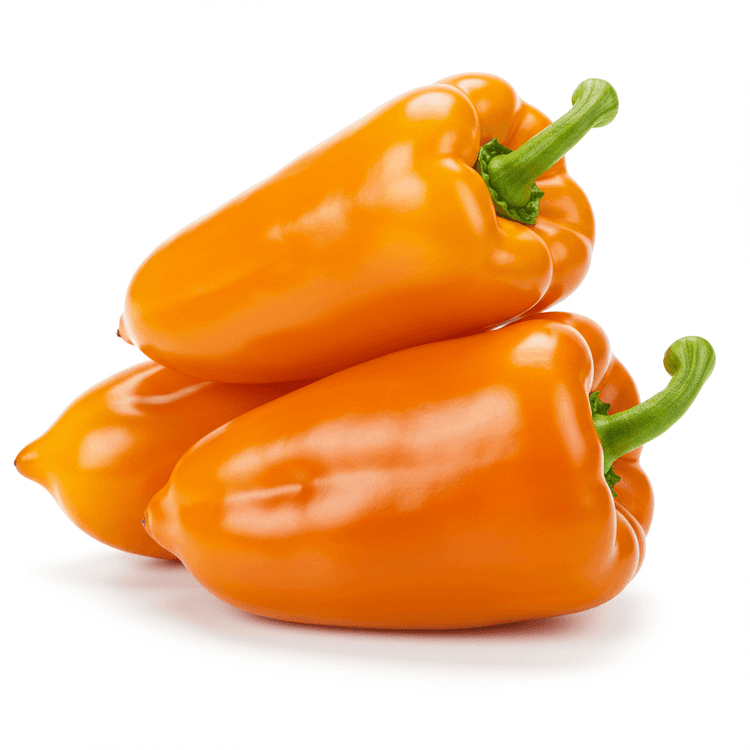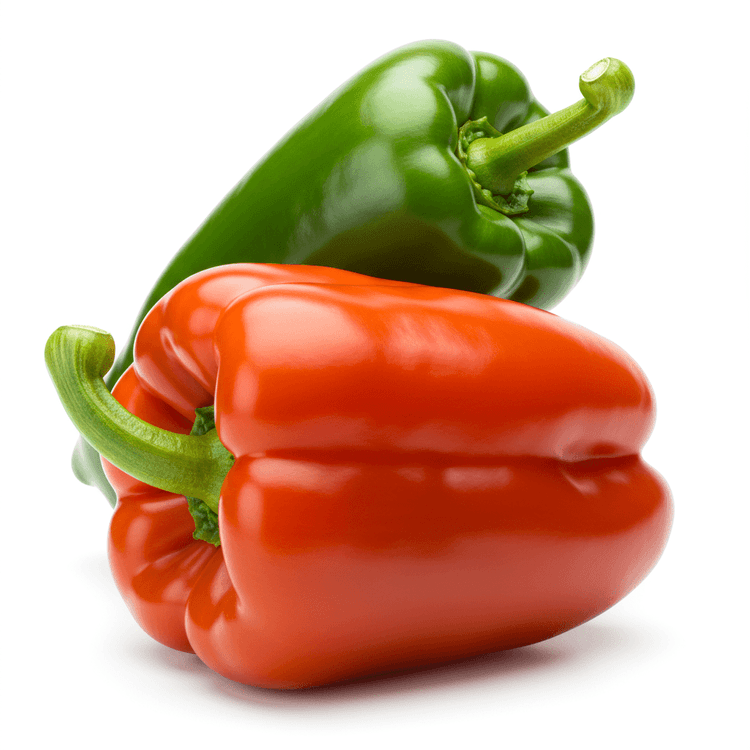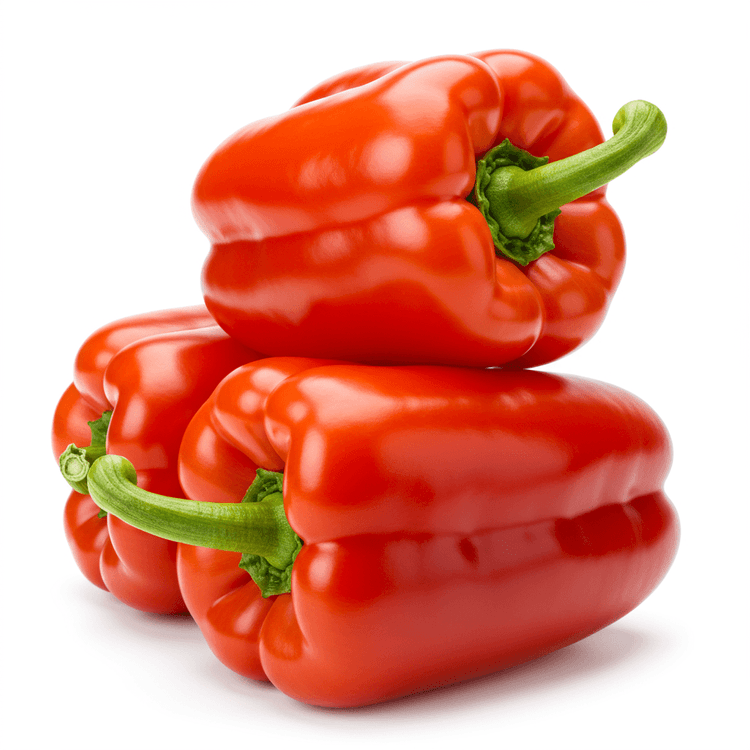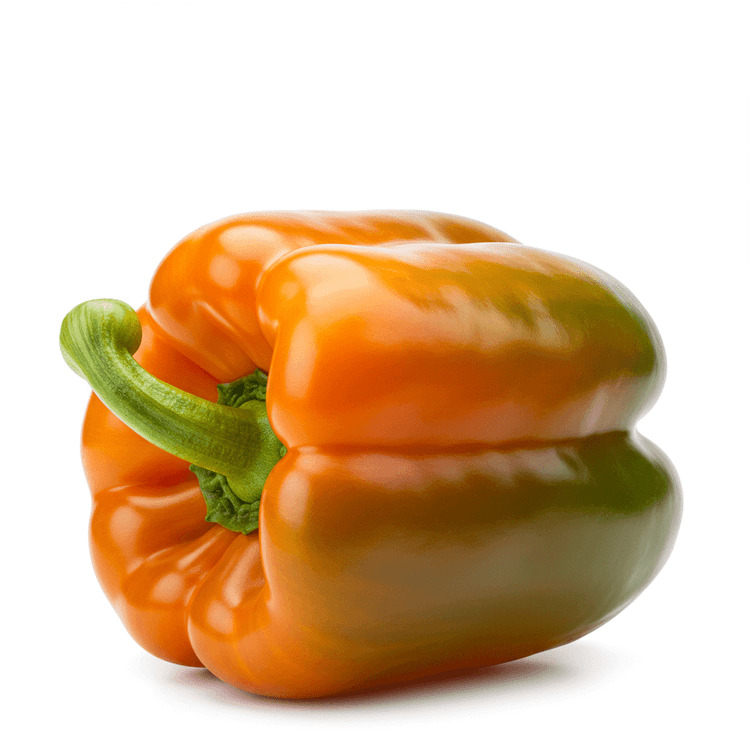
Big Bell Pepper
Big bell peppers, also known as sweet peppers, are vibrant and versatile vegetables prized for their mild, slightly sweet flavor and crisp, juicy texture. Available in a rainbow of colors – green, red, yellow, and orange – they add visual appeal to any dish. Their thick, glossy skin encases a hollow interior with small, edible seeds. When searching for fresh bell peppers, look for firm, unblemished produce with a healthy green stem. These colorful peppers are low in calories and packed with vitamins, making them a healthy and delicious addition to any diet. The larger size and sturdy structure of a big bell pepper makes it suitable for stuffing and roasting whole.
Common Uses
- Bell peppers are frequently stuffed with fillings like rice, meat, or vegetables and then baked or roasted until tender, creating a hearty and flavorful main course. - Diced bell peppers are a common addition to stir-fries, providing a pop of color, sweetness, and crispness alongside meats, vegetables, and sauces. - Bell peppers can be sliced and grilled or roasted as a side dish, developing a slightly smoky flavor and softening in texture. - Raw bell pepper strips are a popular and healthy snack, often served with dips like hummus, ranch, or guacamole. - Big bell peppers, when sliced, are used to add flavor, texture and visual appeal to salads. - Chopped bell peppers are incorporated into omelets, frittatas, and quiches, adding a touch of sweetness and color to these egg-based dishes.
Nutrition (per serving)
Nutrition (per serving)
Calories
24.0kcal (1.2%)
Protein
0.9g (1.8%)
Carbs
5.8g (2.11%)
Sugars
4.0g (8%)
Healthy Fat
0.1g
Unhealthy Fat
0.0g
% Daily Value based on a 2000 calorie diet
Nutrition (per serving)
Calories
24.0kcal (1.2%)
Protein
0.9g (1.8%)
Carbs
5.8g (2.11%)
Sugars
4.0g (8%)
Healthy Fat
0.1g
Unhealthy Fat
0.0g
% Daily Value based on a 2000 calorie diet
Health Benefits
- Rich in Vitamin C, boosting your immune system and acting as a powerful antioxidant.
- Excellent source of Vitamin A, promoting healthy vision and skin.
- Contains Vitamin B6, important for brain development and function.
- Low in calories and high in fiber, supporting weight management and digestive health.
- Provides antioxidants like carotenoids, potentially reducing the risk of chronic diseases.
- Good source of Vitamin K, helping with blood clotting and bone health.
Chefadora AI is here.
Experience smarter, stress-free cooking.
Storage Tips
Bell peppers are best stored in the refrigerator to maintain their crispness and flavor. Place them in a perforated plastic bag in the crisper drawer. Avoid washing them before storing, as excess moisture can lead to spoilage. Stored properly, bell peppers can last for one to two weeks. For longer storage, bell peppers can be diced and frozen; however, the texture may change, making them best suited for cooked dishes.
Marnirni-apinthi Building, Lot Fourteen,
North Terrace, Adelaide, South Australia, 5000
Australia
